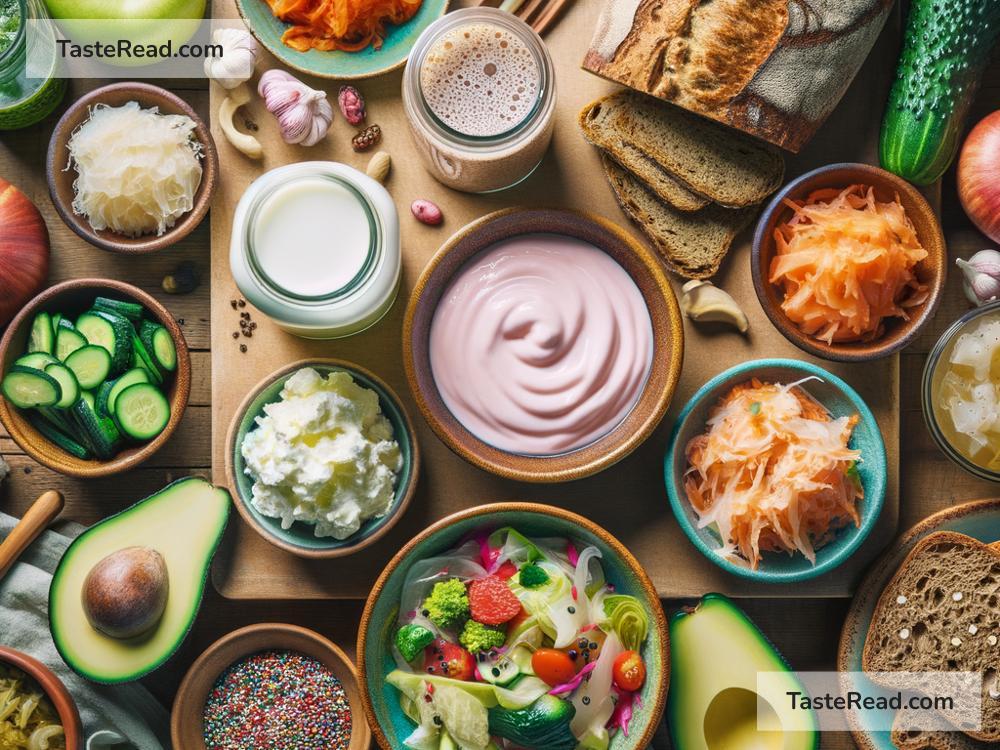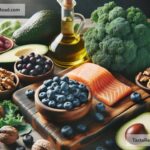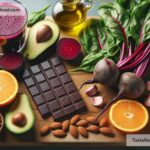Foods That Promote Healthy Bacteria in Your Intestines
Did you know there’s an exciting ecosystem living inside of you? Your intestines are home to trillions of microorganisms, including bacteria, which play an essential role in your health. These bacteria are often referred to as your “gut microbiome,” and they help with digestion, boost your immune system, and even affect your mood.
But here’s the deal: not all bacteria are good for you. A healthy microbiome means having more of the good bacteria and fewer of the harmful ones. What we eat plays a huge role in shaping this balance. If you want to boost your gut health, you need to focus on eating foods that promote healthy bacteria. Let’s explore some of the best foods for a happy gut!
1. Fermented Foods
Fermented foods are a superstar when it comes to gut health. They are made through a process where natural bacteria and yeast break down food components, such as sugars. This fermentation process helps create beneficial probiotics—live bacteria that improve your gut health.
- Yogurt: A classic favorite, yogurt is packed with probiotics, such as Lactobacillus and Bifidobacterium. Look for brands that say “live and active cultures” on the label, and avoid yogurt with too much added sugar.
- Kefir: Similar to yogurt but thinner, kefir is a fermented milk drink loaded with probiotics.
- Sauerkraut: Fermented cabbage, sauerkraut is rich in good bacteria and also a great source of fiber.
- Kimchi: A spicy Korean side dish made from fermented vegetables (often cabbage), kimchi contains probiotics and vitamins to keep your gut in top shape.
- Miso: Found in Japanese cuisine, miso is a fermented soybean paste commonly used in soups. It’s full of gut-loving bacteria.
Adding fermented foods to your meals is an easy and delicious way to boost your gut health!
2. Fiber-Rich Foods
Fiber isn’t digested like other nutrients, but it feeds your gut bacteria. It acts like a fertilizer, helping good bacteria thrive. Foods high in fiber are called prebiotics, because they serve as food for probiotics.
Some excellent sources of fiber include:
– Whole grains: Oats, brown rice, quinoa, and whole grain bread are great options for gut health.
– Legumes: Lentils, chickpeas, and beans are not only high in fiber but also contain important nutrients like protein.
– Fruits: Bananas, apples, berries, and oranges are fiber-rich fruits that your gut bacteria love.
– Vegetables: Broccoli, onions, garlic, and artichokes are fiber-packed options that help nourish healthy bacteria.
A diet high in fiber not only supports your gut but can also prevent constipation and keep your digestion on track.
3. Foods Rich in Polyphenols
Polyphenols are natural compounds found in plants that act as antioxidants. They help reduce inflammation in the gut and promote the growth of healthy bacteria.
Some polyphenol-rich foods to include in your diet are:
– Green tea: Sip a cup daily for its gut-healing benefits.
– Dark chocolate: Look for a version with at least 70% cocoa content for the highest polyphenol levels (and a satisfying treat!).
– Berries: Blueberries, strawberries, and raspberries are packed with polyphenols and are also great sources of fiber.
– Olive oil: A staple of the Mediterranean diet, olive oil supports both gut health and overall wellness.
While these foods are nutritious, moderation is key—especially with options like dark chocolate!
4. Probiotic Supplements
While getting probiotics from food is ideal, supplements can be helpful in certain situations, such as when you’re traveling or recovering from antibiotics (which can wipe out good bacteria). Probiotic supplements usually contain specific strains of bacteria targeted for gut health.
If you opt for a supplement, choose one that’s high-quality and checked for specific strains like Lactobacillus and Bifidobacterium. It’s always a good idea to consult with a healthcare professional before starting supplements.
5. Foods to Limit
Just as there are foods that promote gut health, there are foods that can harm it. Processed foods, sugary drinks, and artificial sweeteners can damage your gut microbiome, reducing the growth of healthy bacteria and increasing inflammation. Cutting back on these foods can make a big difference in how your gut feels.
Also, antibiotics—while life-saving when necessary—can temporarily disrupt your gut’s balance by killing both harmful and good bacteria. During and after taking antibiotics, focus on eating probiotic-rich and fiber-filled foods to help restore your gut health.
Final Thoughts
Your gut microbiome greatly influences your overall health, and the food you eat can make or break its balance. Including fermented foods, fiber-rich options, and polyphenol-packed choices in your diet is an easy and delicious way to support your gut bacteria.
Remember, it’s not about completely overhauling your diet overnight; small changes make a big impact! Start by adding a few gut-friendly foods to your meals and paying attention to how your body feels. Over time, your gut health will improve—and you’ll likely feel better in ways you didn’t expect, including improved digestion, stronger immunity, and even better mood balance.
So the next time you’re filling your plate, remember: you’re not just feeding yourself; you’re also feeding the tiny but mighty bacteria inside you! Treat them well, and they’ll take care of you.
Your gut loves good food—and so does your body. Why not give it some healthy bacteria-boosting treats today? It’s a win-win!


